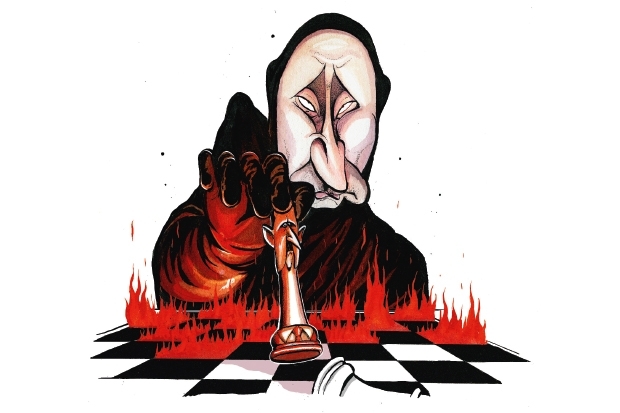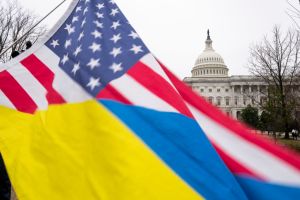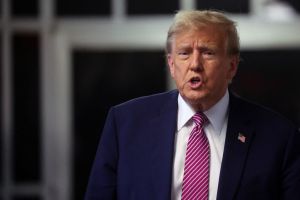What does Putin want? It’s more straightforward than you might think: usually the answer is ‘what he says’. It’s worth remembering this when thinking about what Putin had to say in his latest state of the nation address this week, in which he warned other countries against crossing a ‘red line’ with Russia.
There is, of course, a huge difference between the tactical and the strategic. All politicians have a tendency to economize with the truth, and at times it can feel that the Kremlin has taken this to the level of an art form.
Remember those ‘little green men’ taking Crimea? Putin initially denied any responsibility, even suggested they might have bought their up-to-the-minute kit from army surplus shops, before later comfortably acknowledging them as Russian special forces.
But in terms of the big picture, Putin has often been strikingly straightforward. We just often don’t want to, or let ourselves, believe him. Or, just as problematic, we too often refuse to believe that he believes what he says he believes. If you see what I mean.
This was especially evident in the foreign policy section of Putin’s latest address, a classic mix of tactical deception and strategic candor.
There was some vintage nonsense about an alleged coup plot against Belarusian dictator Alexander Lukashenko. However little enthusiasm Putin has for him as a person, now that Lukashenko is forced to become a Russian client, the Kremlin is spinning the myth that the West was planning an armed coup against him.
Putin’s real motivations are wider, though. ‘What would have happened if the attempted coup d’état in Belarus had actually been carried out? … Nobody thinks about that. The way no one thought about the fate of Ukraine when the coup was carried out in that country.’
The man who looked on in fear as East Germany collapsed in the face of people power, and then as the Soviet Union broke apart, Putin has a genuine horror of the mob. The ‘Arab Spring’ risings, the ‘colored revolutions’ across post-Soviet Eurasia, the 2013-14 ‘Euromaidan’ rising in Ukraine and the present turmoil in Belarus: he regards these not as popular protests against corrupt and authoritarian regimes. Rather, products of Western machinations, CIA and MI6 coups.
To him, the world is essentially zero-sum: if Russia ‘loses’ a country, it is because someone else has ‘taken’ it. So when clients and allies from Damascus to Caracas are under pressure, he sees the world as a global game of Risk, in which the other side is cheating.
For Putin, Russia’s legitimate interests at stake, and we are the problem:
‘We really want good relations with everyone, including, by the way, with those with whom our relations have not been improving lately, to put it mildly. We really don’t want to burn bridges. But if someone perceives our good intentions as indifference or weakness and intends to finally burn or even blow up these bridges, he should know that Russia’s response will be asymmetrical, swift and harsh.’
It’s easy to assume he is being disingenuous, rabble-rousing for a domestic audience, or playing mind games with the rest of us. However, he has been consistent in his core messaging, since even before he was president. Back in 1999, he said:
‘Russia has been a great power for centuries, and remains so. It has always had and still has legitimate zones of interest … We should not drop our guard in this respect, neither should we allow our opinion to be ignored.’
These themes, that Russia has some special status as a great power, that it has a right to a sphere of influence – including such states as Ukraine and Belarus – and that its interests must be given precedence, all these have fueled policy ever since.
So, yes, when it comes to the big picture, Putin tends to tell the truth. His truth, of course. It is not that we ought to accept his view of the world, one colored with the experiences of imperial collapse and shaded by the paranoid intelligence briefings on which he relies. But at least we ought to chart our responses to him in light of the fact that, while he will exaggerate, grandstand and posture like any politician, in essence with Putin, what we see is what we get.
This article was originally published on The Spectator’s UK website.


















